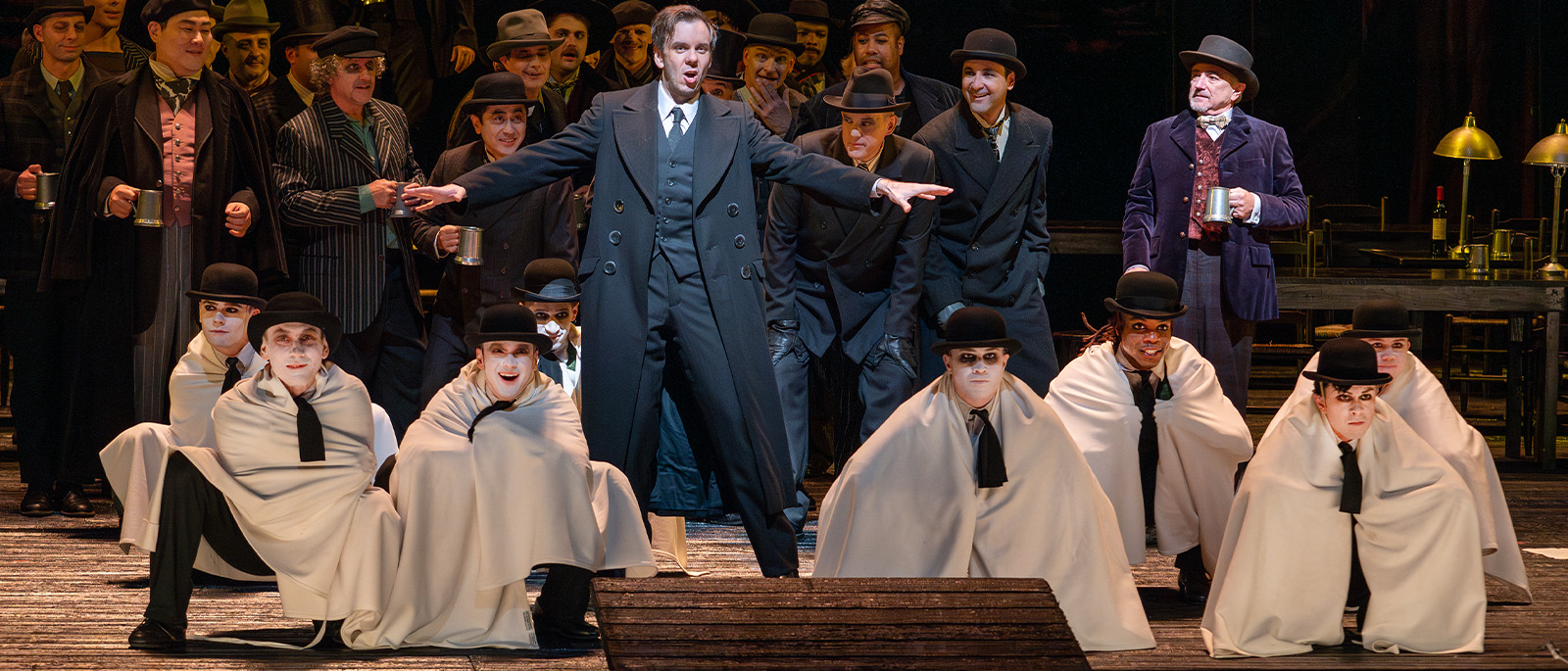
Jacques Offenbach
Les Contes d’Hoffmann
LIVE IN HD
Overview
On October 5, an ensemble of leading lights take the stage for Offenbach’s fantastical final work, headlined by tenor Benjamin Bernheim in the title role of the tormented poet. Hoffmann’s trio of lovers are sung by soprano Erin Morley as the mechanical doll Olympia, soprano Pretty Yende as the plagued diva Antonia, and mezzo-soprano Clémentine Margaine as the Venetian seductress Giulietta. Marco Armiliato conducts Bartlett Sher’s evocative production, which also features bass-baritone Christian Van Horn as the Four Villains and mezzo-soprano Vasilisa Berzhanskaya in an important company debut as Hoffmann’s friend Nicklausse. This live cinema transmission is part of the Met’s award-winning Live in HD series, bringing opera to movie theaters across the globe.
English StreamText captioning is available for the Met’s transmission of Les Contes d’Hoffmann here. A transcript of the transmission will also be available to view after the live performance.
Buy tickets for Les Contes d’Hoffmann live in the opera house here.
Production a gift of the Hermione Foundation, Laura Sloate, Trustee; and the Gramma Fisher Foundation, Marshalltown, Iowa
Additional support from the Estate of Helen F. Kelbert and Mr. and Mrs. William R. Miller
Revival a gift of C. Graham Berwind, III and Elizabeth M. and Jean-Marie R. Eveillard
SUNG IN
FRENCH
Timeline
Timeline for the show, Les Contes d’Hoffmann
ESTIMATED RUN TIME
4 HRS 5 MINS, WITH TWO INTERMISSIONS
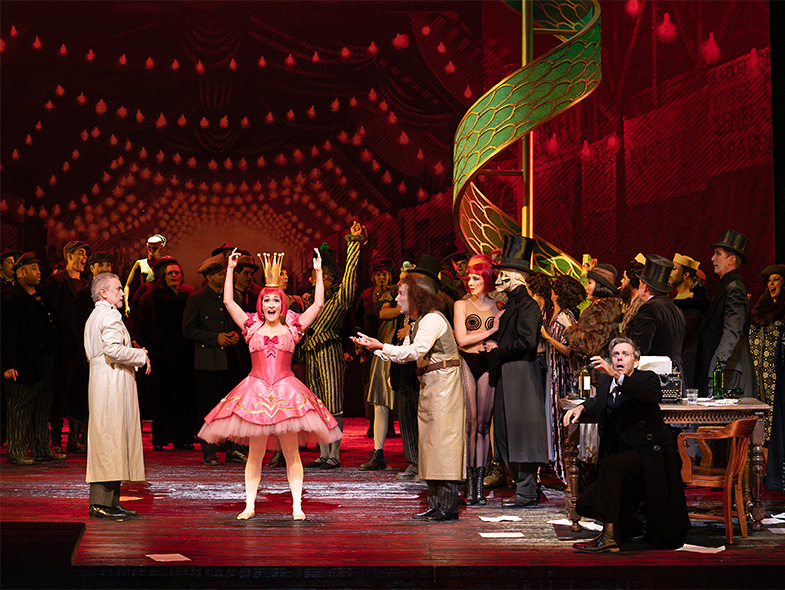
Premiere: Opéra Comique, Paris, 1881. After becoming the toast of Paris with his witty operettas, Jacques Offenbach set out to create a more serious work. He chose as his source a successful play based on the stories of visionary German writer E.T.A. Hoffmann. Three of these tales—at once profound, eerie, and funny—were unified in the play by a narrative frame that made Hoffmann the protagonist of his own stories. Each episode recounts a catastrophic love affair, and throughout the opera, Hoffmann is dogged by a diabolical nemesis and accompanied by his faithful friend Nicklausse.
Creators
Jacques Offenbach (1819–80) was born Jacob Offenbach in Cologne, Germany, of Jewish ancestry. He moved to Paris in 1833, where he became a hugely successful composer of almost 100 operettas. Jules Barbier (1825–1901) was the librettist for many operas, including Gounod’s Faust and Roméo et Juliette. He frequently collaborated with Michel Carré (1822–72), with whom he wrote the play on which the Hoffmann libretto is based. E.T.A. Hoffmann (1776–1822) was a German author and composer whose stories have inspired a variety of subsequent works, including Tchaikovsky’s ballet The Nutcracker.
PRODUCTION
Bartlett Sher
SET DESIGNER
Michael Yeargan
COSTUME DESIGNER
Catherine Zuber
LIGHTING DESIGNER
James F. Ingalls
CHOREOGRAPHER
Dou Dou Huang
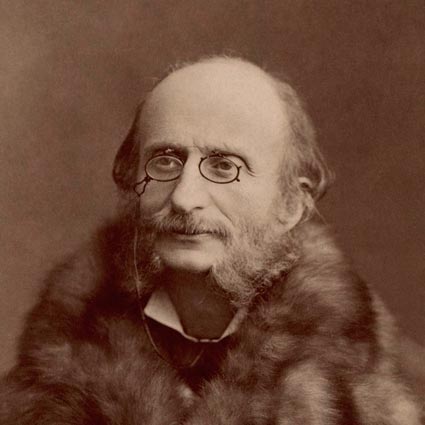
Composer
Jacques Offenbach
Setting
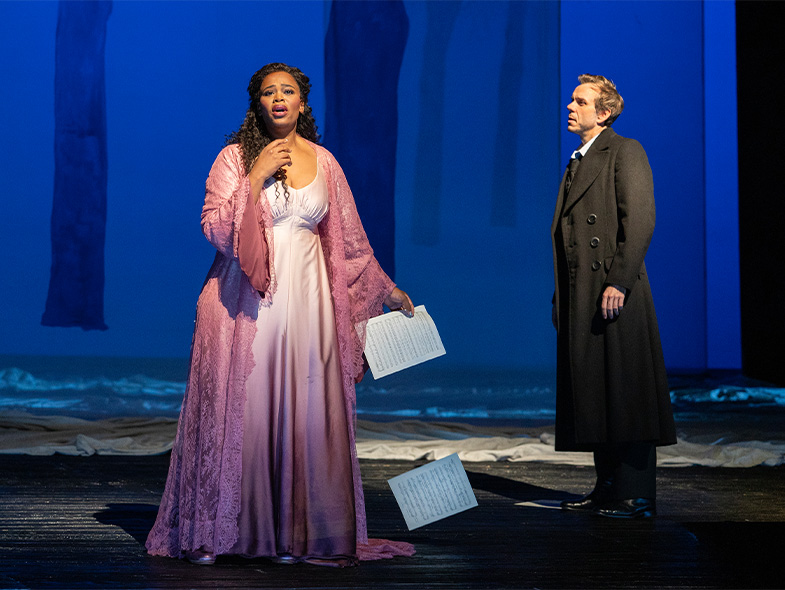
The action of the prologue and epilogue takes place in an unnamed German city, in “Luther’s tavern.” The tavern setting (as well as the lurking presence of a diabolical client) recalls the Faust legend and casts an otherworldly ambience on the subsequent episodes. Each of these flashbacks occurs in evocative settings representing a cross-section of European cultures: Paris (Act I), Munich (Act II), and Venice (Act III). In Bartlett Sher’s production, the world of Franz Kafka and the era of the 1920s provide a dramatic reference point.
Music
Offenbach’s music is diverse, ranging seamlessly from refined lyricism to a broader sort of vaudeville, with the extreme and fantastic moods of the story reflected in the eclectic score. The composer’s operetta background is apparent in the students’ drinking songs in the prologue and epilogue, in the servant’s comic song in Act II, and in Act I’s glittering entr’acte and chorus. The juxtaposition of beauty and grotesquerie, which is such a striking feature of the drama, is also found throughout the music.
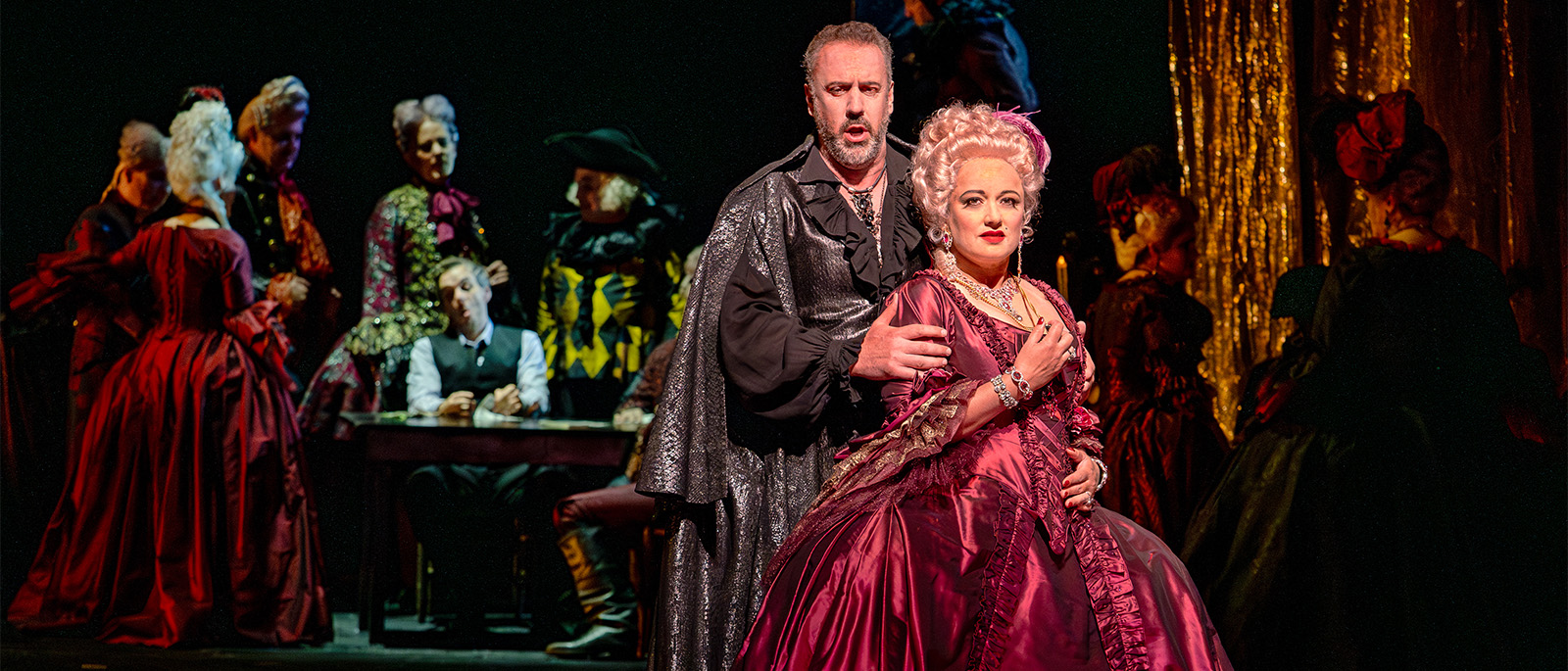
Share This Page
Social Share
Copied